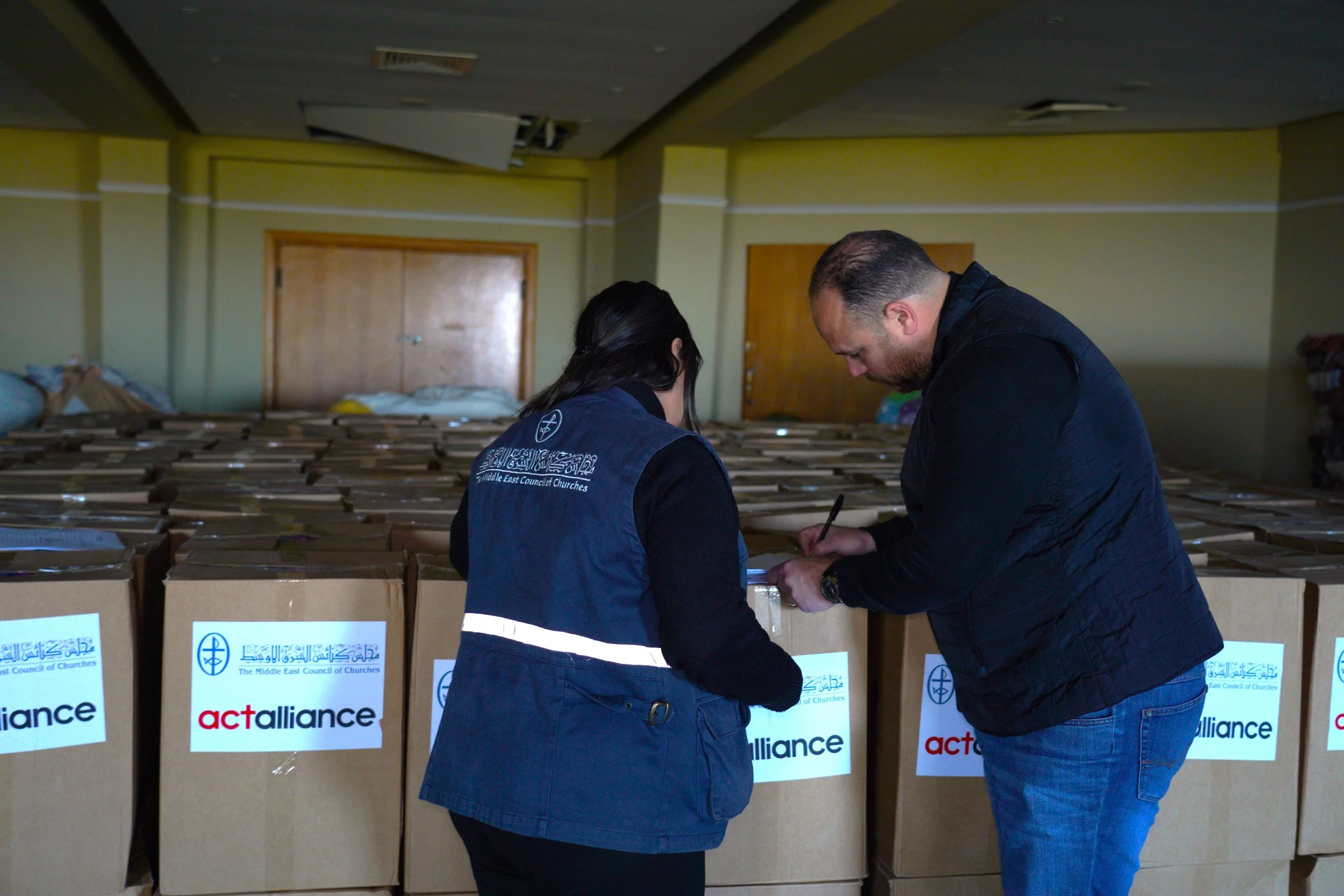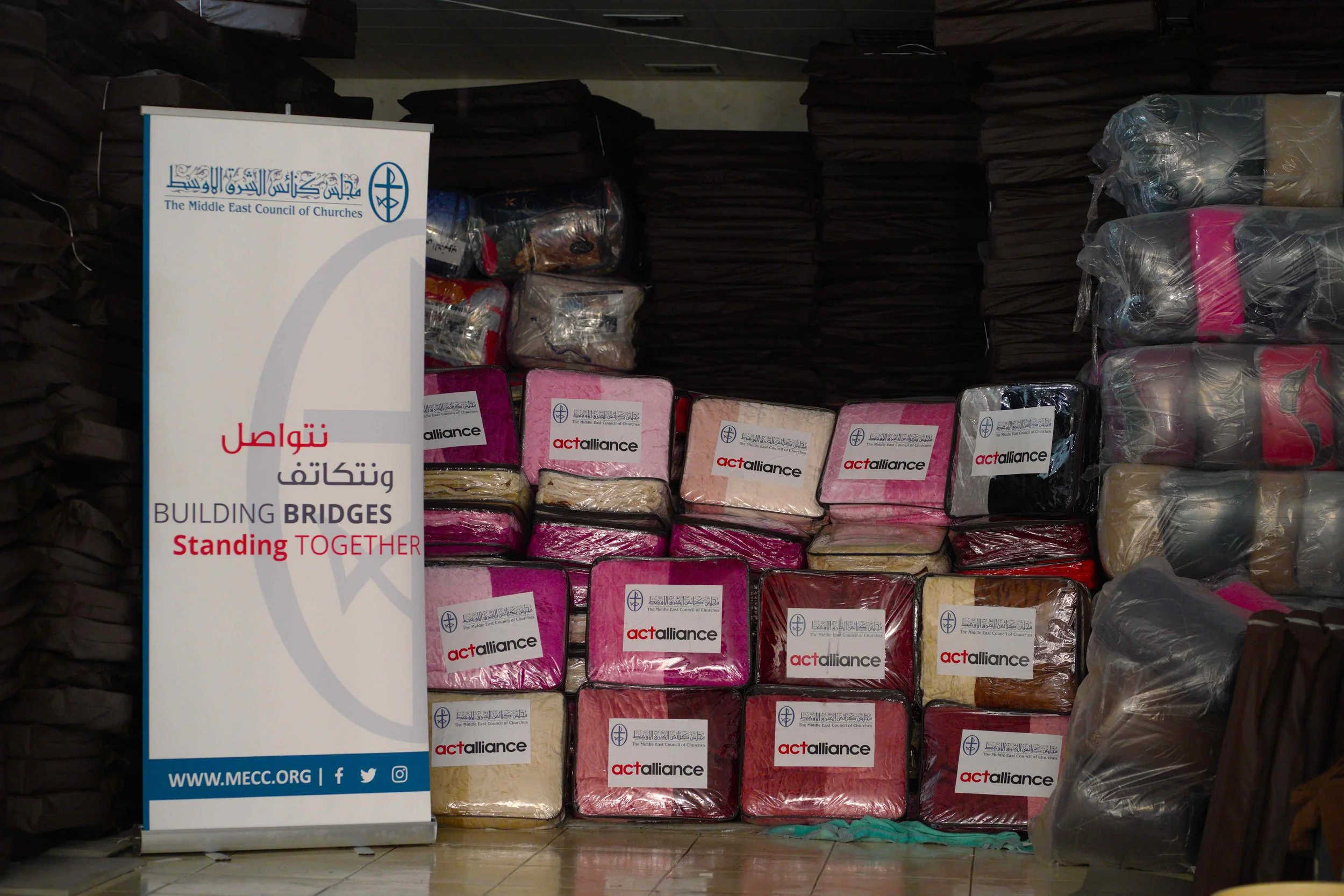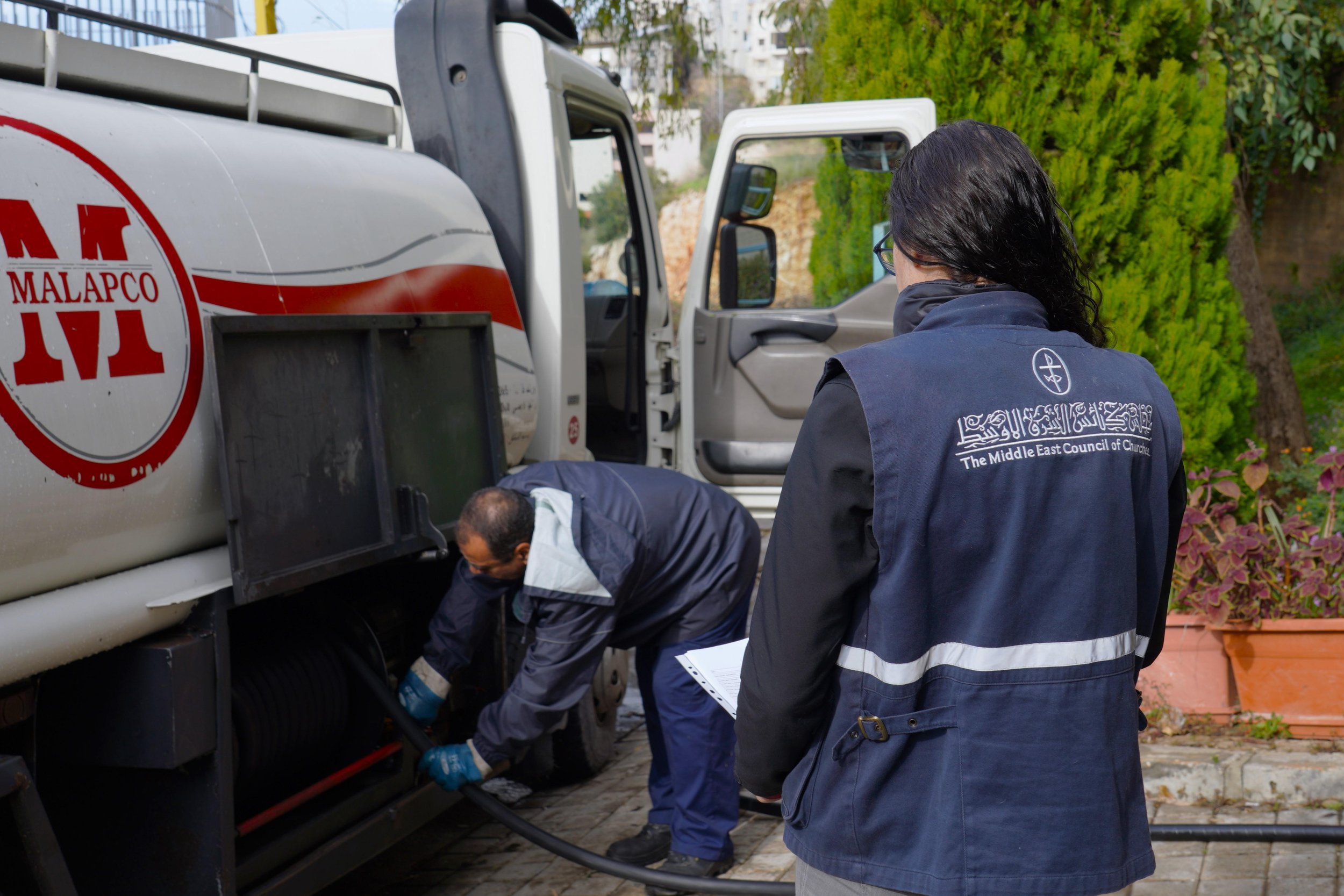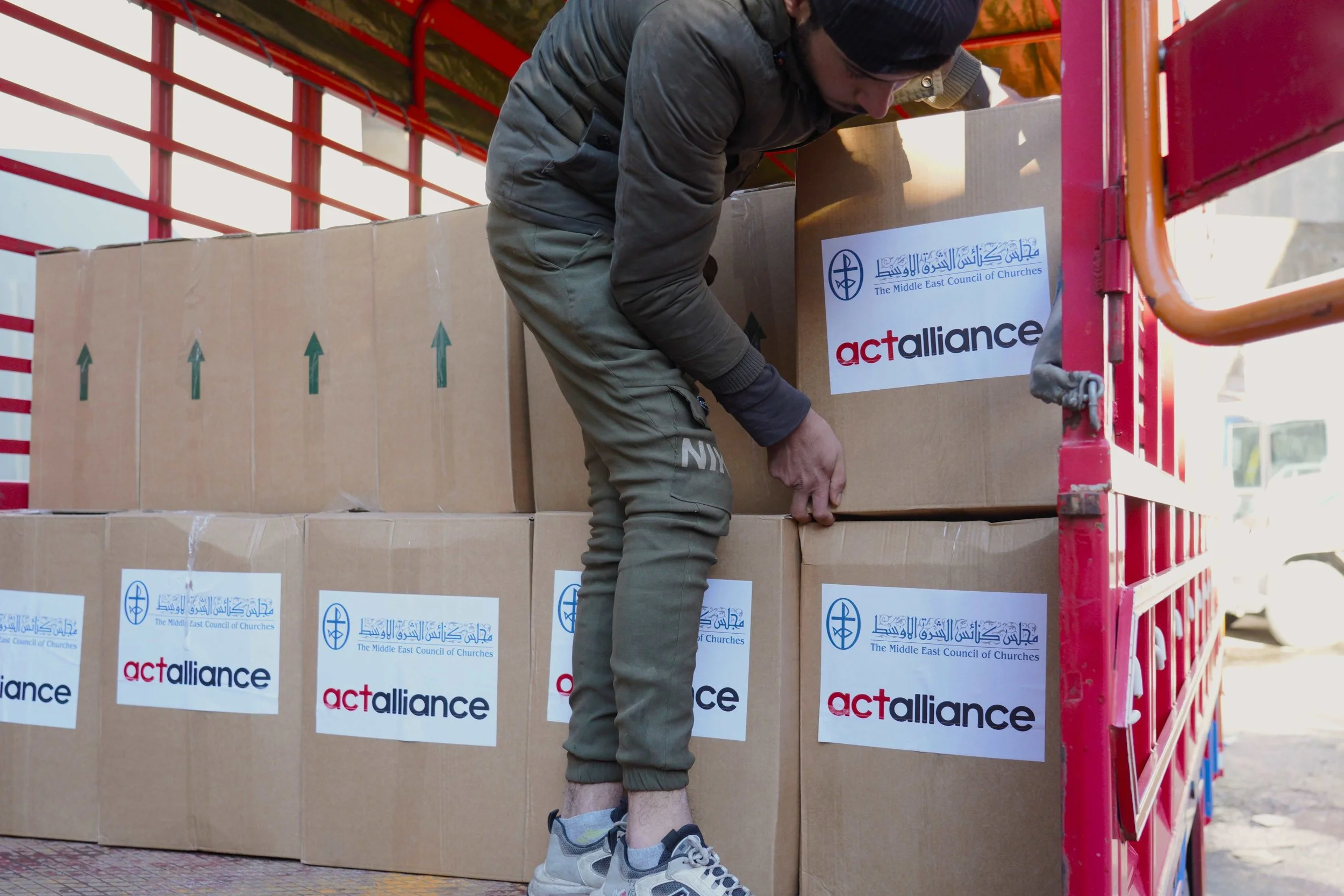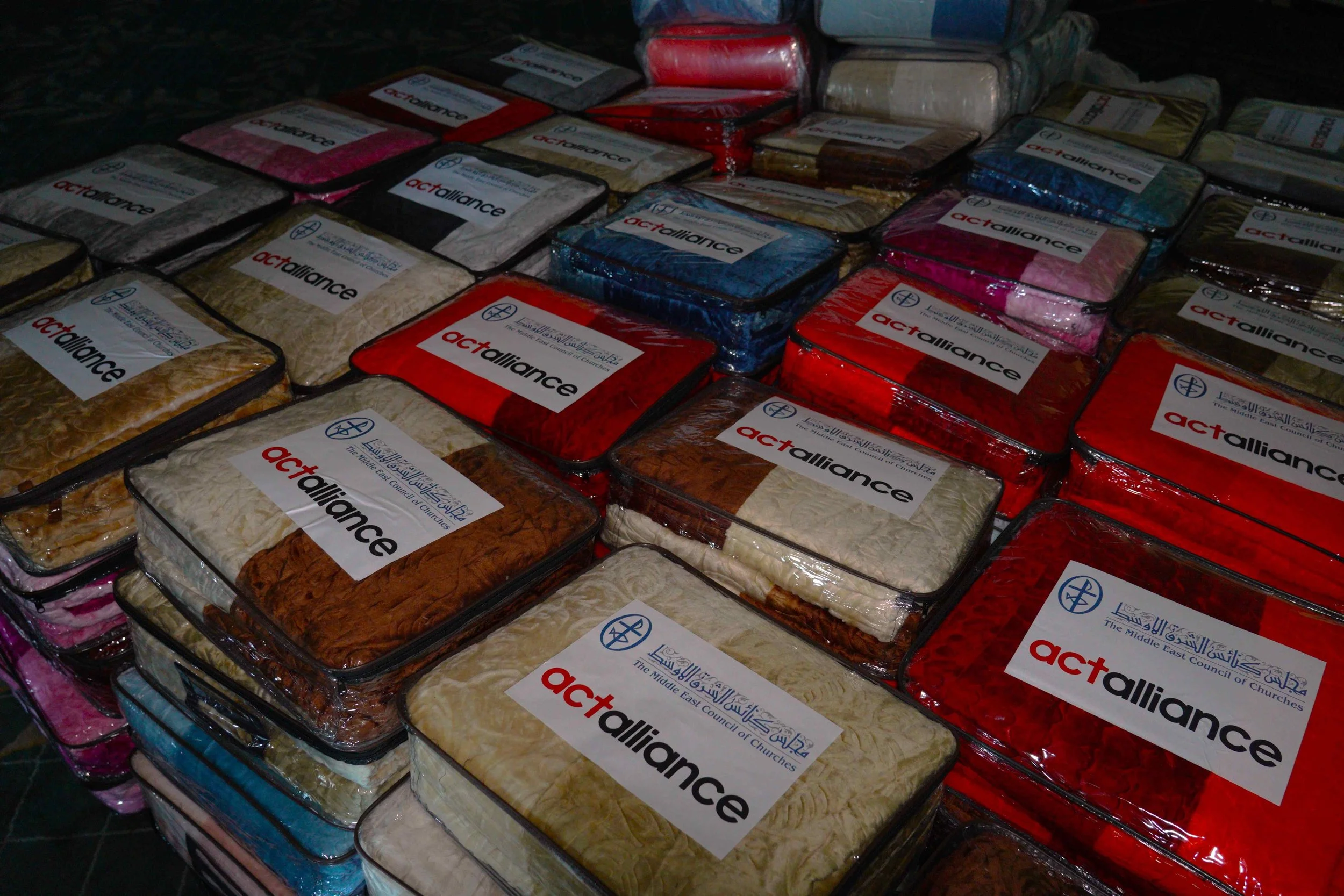The Middle East Council of Churches Contributes to Supporting More Than 10,000 Displaced People from the South of Lebanon
The escalation occurring in the South, resulted in the displacement of several citizens in various areas of Lebanon. They were forced to abandon their homes, possessions, and sources of livelihood during a time when the economic crisis is still prevailing. Already, the government was not able to provide the right circumstances for ordinary citizens to maintain their livelihood and source of income as many of the Lebanese population have fallen below the poverty line.
According to recent estimates, 80% of the Lebanese live in poverty and 36% below the extreme poverty line. As such, many are not able to acquire the basic necessities that encompass food, medication, heating equipment, and hygiene & dignity supplies etc... Expectations indicate, amidst the urgency of the situation, that between April and September 2024, about 1.14 million people are expected to face high levels of food insecurity and are likely to be in a crisis or emergency phase according to standards set by the Integrated Food Security Classification. As such the issue of the internally displaced people (IDPs) coming from the South, came at an unfavorable time during which humanitarian needs are already shocking.
Emergency response efforts that prioritize the distribution of essential aid to the internally displaced people (IDPs), including blankets, food kits, hygiene kits, diapers for children and the elderly, cleaning kits, diesel for lighting and heating the shelters, and dignity kits for women as well as multi-purpose cash, have a significant impact on the well-being and survival of vulnerable populations.
For this reason, the Middle East Council of Churches (MECC), Diakonia and Social Service Department, Lebanon’s Office, launched a project to deliver lifesaving and timely aid since the onset of the crisis in October 2023 empowering resilience to the most affected and vulnerable groups. Thus, MECC outreached over 10,000 individuals with urgently needed goods and cash in various districts receiving the internally displaced people (IDPs).
Noting that displaced people are living in collective shelters or seeking refuge at friends and family thus increasing economic burden on the hosting families as well as those remaining behind, fearing to leave their livelihoods and belongings yet suffering an economic downturn themselves. Hence, by addressing immediate needs, protecting dignity, promoting health, and supporting psychological well-being, these interventions contribute to the overall resilience and recovery of displaced communities.
Therefore, it is crucial for humanitarian organizations, governments, and stakeholders to continue prioritizing and investing in emergency response efforts that provide comprehensive aid to the internally displaced people (IDPs), ensuring their basic needs are met and facilitating their journey towards recovery and stability.

